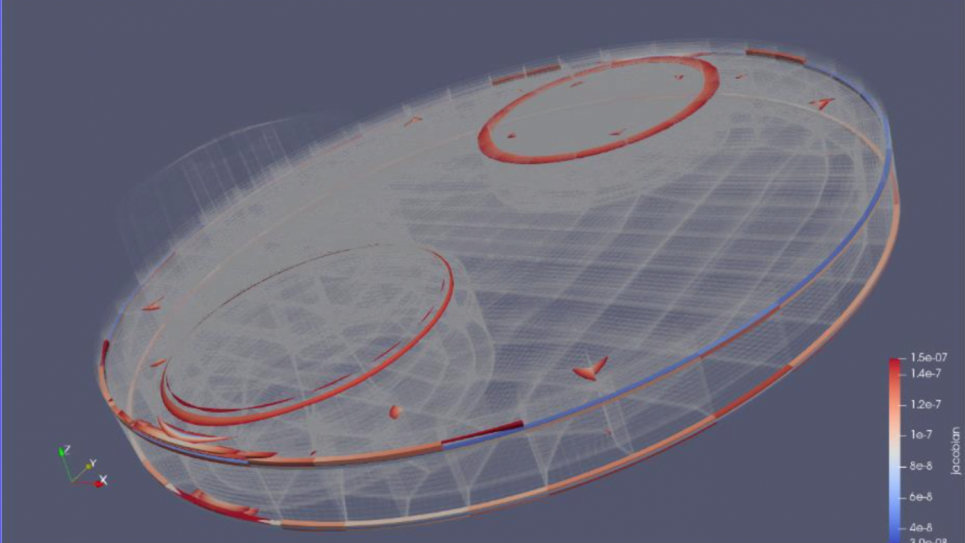
Internal Combustion Engine Simulations. Image: Muhsin Ameen, Argonne National Laboratory
The focus of this project is on developing the Nek5000, a leading high-order spectral element, open-source code for accurate modeling of fluid turbulence, into an effective exascale code for high-fidelity ICE simulations.
To create and sustain leadership in the global transition to a clean energy economy, America needs sustainable transportation through advanced combustion engines with reduced emissions and improved efficiency. Engine manufacturers strive to improve the efficiency and reduce the emissions of internal combustion engines (ICEs) through modifications in engine design. Numerical simulations can play a crucial role by improving the understanding of the in-cylinder combustion process as well as the impact of design changes on the engine performance. Engine manufacturers currently use commercial codes that have inherent limitations in predictive capability and difficulties running at large scale.
The focus of this project is on developing the Nek5000, a leading high-order spectral element, open source code for accurate modeling of fluid turbulence, into an effective Exascale code for high-fidelity ICE simulations. This involves implementing the state-of-the-art submodels for combustion and spray as well as validating against several benchmark engine experiments. Integrating an in-situ analysis framework into Nek5000 will simultaneously reduce data storage requirements and expedite scientific discovery of turbulence, sprays, and combustion phenomena in ICEs.
The capability of the code to accurately capture the complex flow and heat transfer in an ICE with moving piston and valves will be validated using the TCC-III benchmark engine experiments. The implementation of the combustion and spray models into Nek5000 will be validated using benchmark spray and flame experiments. The knowledge gained will improve our understanding of ICEs and help in developing more efficient and cleaner engines.